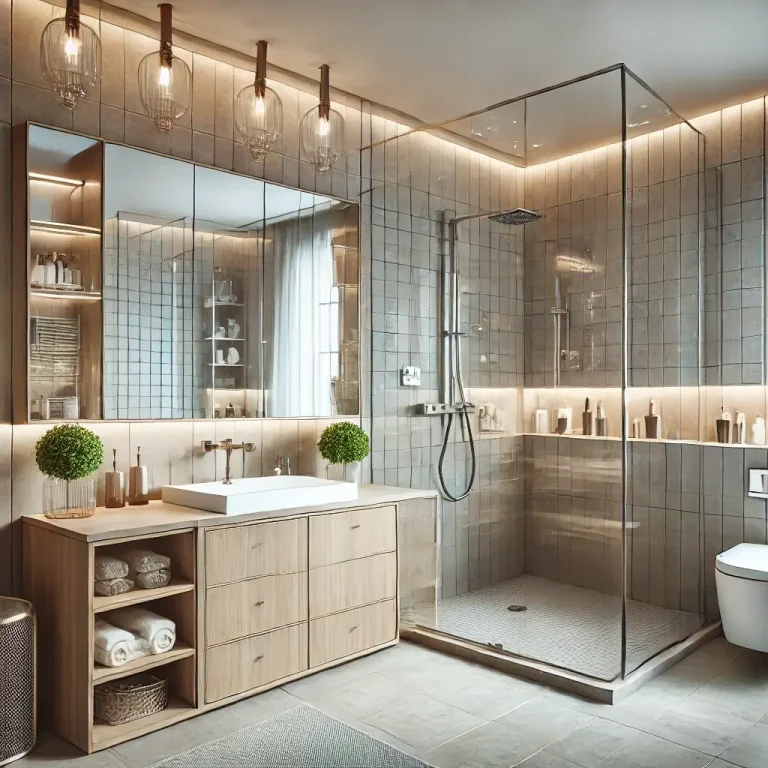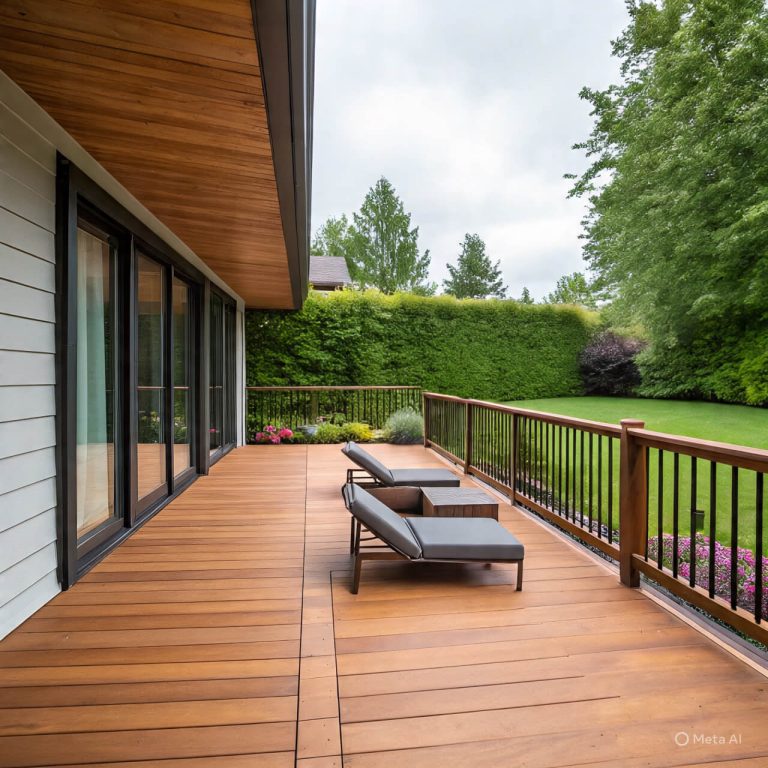How Much Does It Cost to Build a Garage?
Have you ever looked out at your driveway and thought, “Man, I really wish I had a garage?” You’re not alone — thousands of homeowners dream of having that extra space to park their car safely, store seasonal stuff, or finally set up that little workshop they’ve been daydreaming about. But the first thing that probably stops you is the big question: how much does it cost to build a garage? It’s one of those projects that sounds simple at first, but the price tag can surprise you if you’re not prepared. The good news? When you break it down step by step, building a garage is one of the smartest home improvements you can make. Let’s dive in and look at real numbers, hidden costs, money-saving tips, and everything else you need to know to plan your new garage without nasty surprises.
Why Building a Garage is a Smart Investment
Think of a garage like adding a shield to your castle — it protects your car from sun, rain, snow, and hail. And it does more than that. A garage means less scraping ice off your windshield in winter mornings, fewer car washes in dusty summers, and a safer spot to store bikes, tools, or your lawnmower. But there’s an even bigger bonus: it adds resale value. Buyers love houses with garages — especially in neighborhoods where covered parking is rare. In fact, real estate agents often say a garage can boost your home’s value by up to 80% of its construction cost. So, while you might shell out $30,000 or $40,000 upfront, you’re likely to get most of that back when you sell your home someday.
Average Cost to Build a Garage
National Averages for Garage Builds
So, back to the big question: how much does it cost to build a garage? Across the U.S., the average garage build lands somewhere between $35 and $70 per square foot. For most homeowners, that means spending $15,000 to $40,000 for a single-car garage and around $30,000 to $60,000 for a standard two-car garage. But don’t treat these numbers like gospel. Your final price will swing higher or lower based on where you live, how complex your design is, and the quality of finishes you choose. Building in a city with high labor costs will cost more than a rural area with cheaper contractors. A basic garage with no frills will be cheaper than one with fancy doors, insulation, and custom storage.
How Size Impacts the Price
Size is the kingpin when it comes to garage costs. The bigger the structure, the more materials and labor hours you’ll need — simple as that. A compact single-car garage, for example, might be 240 to 400 square feet, giving you just enough room to park and squeeze around your car. But if you add just a few extra feet for storage shelves or a workbench, the costs can snowball quickly. Double-car garages, which are often about 400 to 720 square feet, are the sweet spot for many families — they’re roomy enough for two cars plus some storage but not so big that they blow the budget. Three-car garages? Now you’re looking at 800 to 1,200 square feet, which means more concrete, bigger roof spans, and a higher cost that can easily top $70,000 if you want it customized.
Attached vs Detached Garages
Another decision that shapes the total cost is whether your new garage will be attached to your house or stand alone in the yard. Attached garages tend to be more budget-friendly because they share a wall, wiring, and sometimes even heating with your existing house — that saves on materials and labor. Detached garages, on the other hand, give you freedom to design it exactly how you want without messing with the structure of your home. Want a second story above your garage for a guest suite or office? Detached is usually the way to go. Just remember, running power and water to a standalone garage might cost extra compared to an attached build.
Types of Garages
Single-Car Garage
A single-car garage is a solid choice for homeowners with a tight lot, a single vehicle, or a smaller budget. These compact structures are perfect if you just want to get your car out of the elements and free up your driveway. Single-car garages typically cost $15,000 to $30,000, depending on how fancy you get. Want a basic shell with no insulation or extras? You’ll stay on the lower end. Add insulation, drywall, windows, or storage cabinets, and the number climbs. Even a small garage can feel roomy if you plan it well — think overhead storage racks or wall-mounted tool systems to make the most of limited square footage.
Double-Car Garage
The classic American two-car garage is the gold standard in suburbs for a reason: it offers plenty of space for two vehicles or one car and a ton of storage for bikes, bins, and lawn gear. Most double-car garages fall between 400 and 720 square feet, with costs hovering around $30,000 to $50,000 for standard builds. If you’re planning to stay in your home for the long haul, a double-car garage often gives you the best return on investment, too. Many families even convert part of a two-car garage into a home gym or hobby space while still parking a car inside.
Three-Car Garage
If you’ve got multiple drivers, collect classic cars, or just love having lots of elbow room, a three-car garage might be your dream come true. These larger builds often include space for two everyday cars plus a third bay for a boat, motorcycle, or big toys like jet skis or an ATV. Expect to shell out $50,000 to $80,000 or more, depending on how tricked-out you go. Some homeowners turn the third bay into a workshop or convert it into an office, so the extra cost can really add lifestyle value, not just storage.
Custom Garage Designs
For homeowners who want their garage to do double or triple duty, a custom design is the way to go. Maybe you want a loft apartment above the garage for rental income, a man cave for game nights, an extra-large door for your RV, or you’re also thinking about building a deck to enhance your outdoor space. Custom garages can range from $60,000 to over $100,000, depending on your wish list. Just remember, with custom builds come custom headaches — more permits, longer timelines, and extra complexity. But if you want something unique that fits your life perfectly, it might be worth every penny.
Key Cost Factors

Materials
Materials are the foundation of your budget, literally. From the concrete slab under your tires to the shingles over your head, every piece adds up. Wood framing is the most common choice for residential garages in North America, but metal or brick can add durability and style at a higher cost. Siding, trim, windows, insulation — every decision here can bump your final bill up or down. High-quality materials cost more upfront but save you in the long run through better durability and lower maintenance.
Labor Costs
Unless you’re building it all yourself (more on that later), labor will gobble up a good chunk of your budget — often 40–60% of the total cost. Skilled builders, electricians, plumbers, and roofers don’t come cheap, but they can save you headaches, code violations, and costly mistakes. Always get multiple quotes, check references, and don’t just hire the cheapest crew you find. A botched job costs far more to fix than doing it right the first time.
Permits and Inspections
Before you pour concrete or hammer a single nail, you’ll probably need a building permit from your local municipality. Permits typically cost $500 to $2,000, depending on your city’s requirements and the complexity of your project. Inspections along the way ensure that your garage meets safety codes — think electrical wiring, structural integrity, and proper drainage. Skipping permits can lead to fines, stop-work orders, and trouble when you try to sell your home later.
Foundation and Concrete Work
A garage is only as strong as the slab it sits on. The concrete foundation usually costs $4–$8 per square foot, but tricky soil, sloped lots, or frost footings can push the price higher. Cutting corners here can lead to cracks and water problems down the road, so make sure you hire pros who know your local conditions.
Electrical, Plumbing, and HVAC
A basic garage might only need a few outlets and a light or two, but if you’re planning a workshop, hobby area, or living space, you’ll want more. Running electrical lines and adding outlets costs $1,000–$5,000 depending on complexity. Add plumbing for a utility sink or bathroom and you’ll pay more. Want to heat or cool your garage? Budget for insulation, vents, or even a mini-split HVAC system.
Cost Breakdown by Components
Garage Doors and Openers
Your garage door isn’t just functional — it’s a huge chunk of curb appeal. A standard door costs $500–$2,500, depending on size, insulation, and style. Add another $300–$800 for an automatic opener. Insulated doors cost more upfront but can save on energy bills if your garage is attached to your home.
Roofing and Siding
Match your garage to your house for a cohesive look. Shingle roofing usually runs $1,000–$5,000 depending on size and material. Siding is a similar story — vinyl is affordable, while brick or stone veneer pushes the cost up. High-end finishes can boost resale value but don’t overdo it if it won’t fit your neighborhood.
Insulation and Drywall
If you plan to heat or cool your garage, you’ll definitely want insulation. Adding insulation and drywall can cost $1,000–$5,000, but it makes the space usable year-round. Uninsulated garages are cheaper upfront but cost more in comfort and energy if you ever want to spend time inside.
Flooring Options
Most garages stick with plain concrete because it’s durable and cheap. But if you want to level up, epoxy coatings or interlocking tiles can make your floor easier to clean and nicer to look at. Expect to pay an extra $1,000–$3,000 for a polished finish.
Hidden Costs You Should Know
Site Preparation
One of the sneakiest expenses when figuring out how much does it cost to build a garage is site prep. If your lot is flat and clear, you’re lucky — you’ll save thousands right off the bat. But if you have trees to remove, rocks to clear, or a slope that needs grading, you could easily spend $500–$5,000 before you even break ground. It’s not the most exciting part of the budget, but it’s crucial. Poor site prep can lead to drainage headaches and foundation problems that will cost you way more to fix down the road.
Drainage and Landscaping
Speaking of drainage — don’t forget that your new garage will change how water flows around your yard. If you don’t handle runoff properly, you could end up with puddles, soggy lawns, or worse — water seeping into your foundation. Adding proper drainage, like a French drain or gutters with downspouts that carry water away, can cost $1,000–$3,000 or more. And once the dust settles, you may need to repair your lawn, replant flower beds, or redo a driveway. Always set aside a bit of your budget for landscaping cleanup and finishing touches.
Saving Money When Building a Garage
DIY vs Hiring a Contractor
If you’re handy with a hammer and have a solid understanding of local building codes, you might save a significant chunk by handling parts of the build yourself. DIY can chop 20–50% off labor costs — but only if you know what you’re doing. Mistakes in framing, wiring, or roofing can easily eat up your savings or even cost you more in repairs. For many homeowners, the sweet spot is a hybrid approach: hire pros for the tricky stuff like concrete and electrical, but tackle painting, interior finishes, or even insulation yourself.
Tips to Cut Costs Without Cutting Corners
You don’t have to spend a fortune to get a solid, functional garage. Here are some simple ways to save:
-
Keep the design simple: Fancy rooflines, extra windows, or custom doors all add to the cost.
-
Shop around for materials: Sometimes buying your own doors or fixtures and supplying them to your contractor can shave off a few bucks.
-
Get multiple quotes: Don’t settle for the first builder you find. Prices vary wildly.
-
Time it right: Building during your contractor’s slow season might score you a better deal.
-
Do some of the work yourself: Even painting or cleanup can save hundreds.
Financing Options
Home Equity Loans
Many homeowners use a home equity loan or a line of credit (HELOC) to pay for a new garage. If you’ve built up equity in your house, you can often get a lower interest rate than a personal loan. Just remember, your home is the collateral — so be sure you can handle the payments.
Personal Loans
If you don’t have much equity or don’t want to tap it, a personal loan is another option. The rates might be higher, but you don’t risk your home if something goes wrong. Personal loans are usually best for smaller garages or partial DIY builds.
Contractor Financing
Some builders offer their own payment plans. This can be convenient — but always read the fine print and compare rates. Sometimes, contractor financing costs more in the long run than a traditional loan.
How Long Does It Take to Build a Garage?
Once you’ve done the planning and gotten your permits, the actual build for a standard garage can take 1–2 months if all goes smoothly. But don’t be surprised if weather, inspections, or supply delays stretch things out. If you’re adding custom features like plumbing for a bathroom or a second-story loft, plan for 3–6 months just to be safe. It’s always better to build in a little wiggle room than stress over every weather delay.
Mistakes to Avoid
It’s easy to get tunnel vision about how much does it cost to build a garage, but a few classic mistakes can blow up your budget or timeline fast. First, never skip permits — it might seem like an easy way to save money, but fines or forced demolitions are way more expensive. Second, don’t cheap out on drainage or foundation work. Water damage and cracked slabs can turn your dream garage into a nightmare. Third, don’t automatically hire the lowest bidder. You often get what you pay for, and poor workmanship can cost double to fix later. Lastly, think ahead — do you want an electric vehicle charger later? Need more outlets for tools? It’s way cheaper to run extra wiring during the build than to retrofit it later.
Final Thoughts
So, when it comes down to it, how much does it cost to build a garage? The real answer is: it depends — on your lot, your design, your local market, and how fancy you want to get. But with smart planning, good quotes, and an eye on the details, you can build a solid, valuable garage that protects your car, adds storage, and boosts your home’s resale value for years to come. Take the time to map it out, budget for surprises, and don’t be afraid to get a little creative with how you save. When you finally pull into your brand-new garage for the first time, you’ll be glad you did.
Conclusion
A garage is more than just four walls and a roof — it’s an investment in your home, your convenience, and your peace of mind. Whether you’re dreaming of a simple single-car structure or a tricked-out three-car shop with all the bells and whistles, knowing the real costs ahead of time helps you plan wisely and spend your money where it counts. Remember, every extra dollar you put into smart upgrades and solid materials now pays you back in added value and less stress later. So roll up your sleeves, get some bids, and get ready to build the garage you’ve always wanted. Your car (and your future self) will thank you.
FAQs
What is the cheapest way to build a garage?
The cheapest route is to keep things simple — go with a basic, single-car design, skip fancy finishes, and handle some of the work yourself if you can. Some homeowners choose prefabricated garage kits, which can cost much less than a fully custom build.
Does adding a garage increase home value?
Absolutely. Adding a garage almost always boosts your home’s resale value, especially in areas where parking or storage is scarce. Many buyers see a garage as a must-have, not a luxury.
Can I build my own garage?
If you’re experienced with construction, it’s doable — but remember, it’s a big project. Many DIYers do parts of the work themselves and hire pros for the tricky stuff like electrical, concrete, or roofing.
How long does a garage project take?
A standard garage build takes about 1–2 months, but larger or custom builds with extra features can take up to 6 months from planning to final inspection.
Do I need a permit to build a garage?
In almost every city or town, yes — you’ll need a permit to build a new garage. Skipping it can lead to fines or headaches if you ever sell your house, so always check local codes first.
For more articles visit: Homeglowup.org





